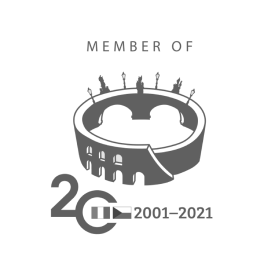
Expat Renting in Prague Face Weak Tenant Protections – New Guide Offers Help
Nearly half of all rental disputes in Prague involve foreign tenants, according to the city’s leading tenants’ rights group. The reason is simple: Czech tenant protections are among the weakest in Europe, and many landlords take advantage of expats’ lack of legal knowledge. For foreigners renting in Prague, navigating the local rental market can be daunting. Contracts are complex, deposits are often unfairly withheld, and the law overwhelmingly favors landlords. Without language skills or familiarity with Czech rental law, many expats accept unfair treatment rather than pursue legal action. This imbalance makes foreigners in Prague easy targets in the housing market, a problem that has persisted for years.
To address this, the Tenants’ Initiative—known locally as Iniciativa nájemníků a nájemnic (INN)—has created a new English-language guide called How to Rent in Prague 101. Written by expats who have experienced these issues firsthand, the handbook aims to give foreigners the tools they need to protect themselves. “Tenant protection in Czechia is weak in general,” explains INN organizer Freia Böhm. “If you’re not oriented in the legal system, plus don’t speak the language, you’ll naturally have a harder time.” The guide breaks down Czech rental law in plain English, offering practical advice on contracts, deposits, repairs, and even how to document a flat before moving in. For anyone considering renting in Prague, the guide provides crucial information to avoid common mistakes.
One of the biggest challenges highlighted in the handbook is the way rental contracts work in Czechia. Each renewal of a fixed-term rental agreement is treated as a brand-new contract. This means landlords can raise rents or change terms every year, something uncommon in many European countries that have rent controls or tenant stability laws. The deposit system also illustrates the power imbalance: landlords regularly demand large security deposits, but withholding them illegally is one of the most common issues reported to INN. Under Czech law, landlords must prove any damage caused by tenants before deducting from the deposit, and tenants are entitled to annual interest on that deposit. Yet many expats renting in Prague do not know these rules, leaving them at risk of losing thousands of crowns.
Discrimination also plays a role when renting in Prague. Böhm notes that while some landlords avoid renting to foreigners due to language barriers or residency complications, others show outright bias, which can vary depending on whether a tenant is from the EU or not, or even based on race. The lack of regulation leaves expats in a vulnerable position, making them easy targets compared to Czech tenants who may be more familiar with their rights. INN emphasizes that many of these issues are structural, not individual, which is why the organization was founded. The How to Rent in Prague 101 guide covers everything from understanding notice periods and move-in inspections to tenants’ rights during noisy construction. For expats, this information can mean the difference between losing money and securing fair treatment.
Still, tenant education alone is not enough. INN is also campaigning for broader housing reforms in the Czech Republic, including an end to chained short-term contracts, stronger market regulation, and action against energy poverty. Until such reforms are achieved, knowledge remains the best defense. As the handbook points out, any rental contract provision that contradicts Czech law in favor of the landlord is legally invalid. But enforcing this requires tenants to know their rights and be willing to stand up for them. For expats renting in Prague, the new guide represents a critical resource to navigate a rental market stacked against them and to finally challenge the imbalance between landlords and tenants.




